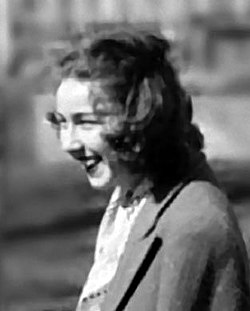Flannery O'Connor Quote
Across the river there was a low red and gold grove of sassafras with hills of dark blue trees behind it and an occasional pine jutting over the skyline. Behind, in the distance, the city rose like a cluster of warts on the side of the mountain. The birds revolved downward and dropped lightly in the top of the highest pine and sat hunch-shouldered as if they were supporting the sky.
Flannery O'Connor
Across the river there was a low red and gold grove of sassafras with hills of dark blue trees behind it and an occasional pine jutting over the skyline. Behind, in the distance, the city rose like a cluster of warts on the side of the mountain. The birds revolved downward and dropped lightly in the top of the highest pine and sat hunch-shouldered as if they were supporting the sky.
Related Quotes
About Flannery O'Connor
Mary Flannery O'Connor (March 25, 1925 – August 3, 1964) was an American novelist, short story writer, and essayist. She wrote two novels and 31 short stories, as well as a number of reviews and commentaries.
O'Connor was a Southern writer who often wrote in a sardonic Southern Gothic style. She relied heavily on regional settings and grotesque characters, often in violent situations. In her writing, an unsentimental acceptance or rejection of the limitations, imperfections or differences of these characters (whether attributed to disability, race, crime, religion or sanity) typically underpins the drama.
O'Connor's writing often reflects her Catholic faith, and frequently examines questions of morality and ethics. Her posthumously compiled Complete Stories won the 1972 U.S. National Book Award for Fiction and has been the subject of enduring praise.
O'Connor was a Southern writer who often wrote in a sardonic Southern Gothic style. She relied heavily on regional settings and grotesque characters, often in violent situations. In her writing, an unsentimental acceptance or rejection of the limitations, imperfections or differences of these characters (whether attributed to disability, race, crime, religion or sanity) typically underpins the drama.
O'Connor's writing often reflects her Catholic faith, and frequently examines questions of morality and ethics. Her posthumously compiled Complete Stories won the 1972 U.S. National Book Award for Fiction and has been the subject of enduring praise.
